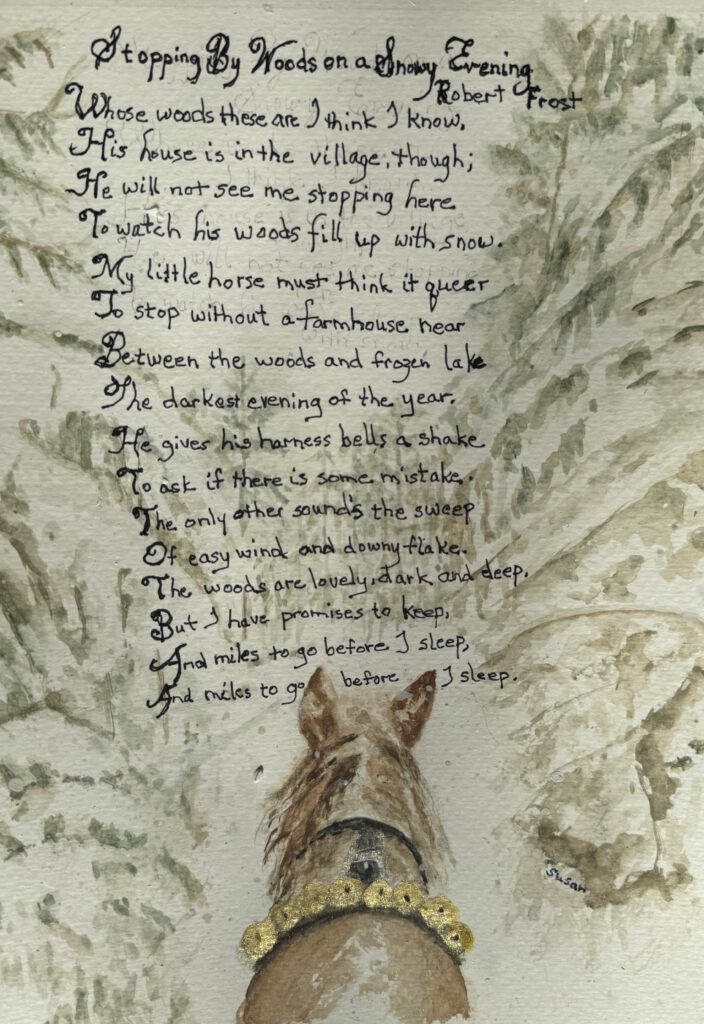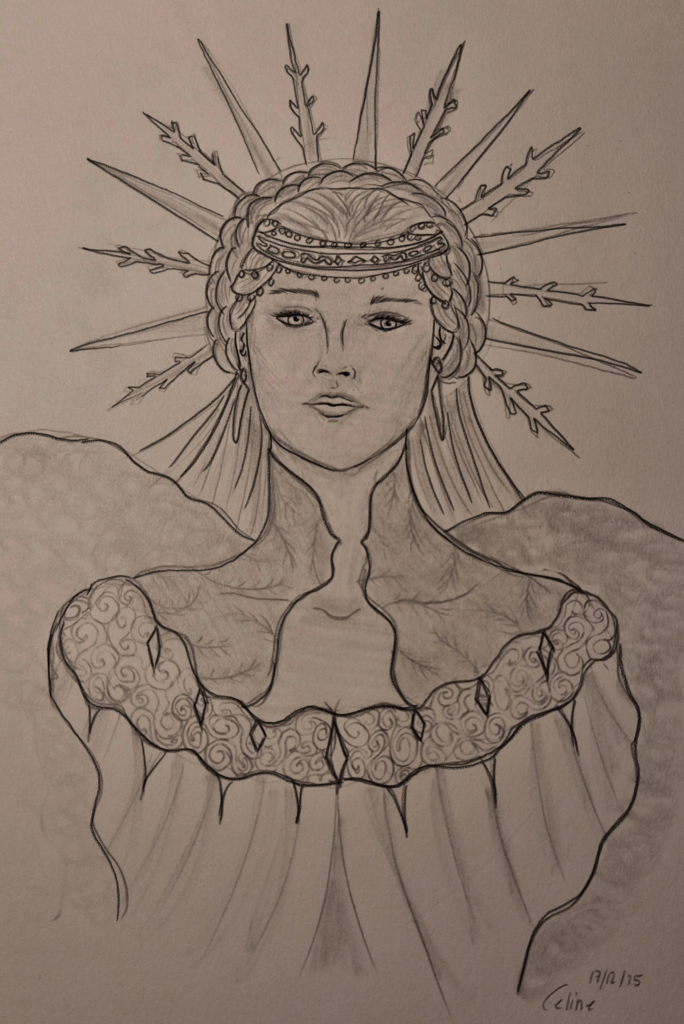Donne’s Sermons as Re-enactments of the Word
Margret Fetzer
Published in Connotations Vol. 17.1 (2007/08)
Whenever John Donne preached at Lincoln's Inn or at St. Paul's, he may well have been aware of that other institution which competed with him for his listeners—even on church days: the theatre. There were two contradictory ways in which this challenge might be met: the most straightforward strategy was to use the pulpit for a thorough denunciation of the theatre as the epitome of (Catholic) heresy and ungodliness in order to prevent listeners from going anywhere near a theatre at any time, let alone on a church day.1) The other possible response was to seize upon the potential of dramatic communication for the production of the sermon itself in order to equal or even outdo the theatre on its own terms—for, although the theatre was denounced, in particular by Puritans, for how it played on and manipulated the senses of its audiences, its great potential in managing to do so did by no means go unnoticed. This can be seen, for example, when John Donne encourages his listeners to re−enact the Biblical script and to take St. Paul's part in his dialogue with the blinding light of Christ by responding to Christ's question "Cur me?" with the words of that same apostle: "Answer this question, with Sauls answer to this question, by another question, Domine quid me vis facere? Lord what wilt thou have me do?" (6.10: 222).
As his contemporary Richard Baker tells us, in his youth, Donne had been "a great frequenter of plays," as well as "a great visitor of ladies"2)—and just as he did not leave behind his erotic passions when approaching God in his divine poetry, so did he retain his predilection for the theatrical mode in his preaching.3) Moreover, the relatedness of Donne's sermons to the theatre must be seen in the context of the [→page 2] liturgical shifts that had taken and were still taking place in the aftermath of the Reformation. In what follows, I shall endeavour to illustrate how Donne's sermons are indebted to theatrical practices of showing and re−enacting the return to life of persons and events otherwise long dead and gone. In Donne, this strategy of theatrical revival is predominantly employed in the service of that grand story of Christianity, namely Christ's passion and resurrection from death. Like the majority of early modern preaching, Donne's sermons, too, share with dramatic (re−)enactments their strong dependence on rhetorical concepts of enargia and energia. However, what is specific about Donne's preaching is, as I shall show, the way in which it adapts the communicative system of the theatre to the genre of the sermon in order to re−enact Christ's sacrifice and resurrection.
Reformation theology was fundamentally a theology of homiletics, so much so that the sermon gradually came to surpass the sacramental relevance of the Eucharist,4) and, according to Ferrell, Donne himself also appears to have "favoured communication over Communion" (63). This shift towards a greater significance of sermon over sacrament during and after the Reformation went hand in hand with the larger significance that was accordingly attributed to preaching: the preacher was expected 'to do,' and not merely say, 'things with words,' and he was to do these things to and together with the people he had before him. The sermon was to make a difference to people's lives, just as the consecrated host had always been (and still was) considered to have a conversional effect on those who received it. As Donne himself puts it: "It hath always been the Lords way to glorifie himselfe in the conversion of Men, by the ministery of Men" (6.10: 205). "In the same way […] as each Christian participates in the activity which is the Lord's Supper, taking and eating the Bread, receiving and drinking the Wine, so also in the audible Sacrament which is the sermon he actively hears and takes into himself the Word of God" (Parker 48)—in other words, each faithful Christian has to swallow that for himself which the preacher brings before him.
[→page 3] In a side−swipe at Roman Catholic priests, Donne, in one of his sermons, makes the following ironic confession: "whereas these men [i.e. Roman Catholic priests] make man, and God too of bread, naturally wholly indisposed to any such change, for this power we confesse it is not in our Commission" (10.5: 129). That he himself should be lacking this ability to make God "of bread," is, however, of little relevance, as, "for that power, which is to work upon you, to whom we are sent, we are defective in nothing" (10.5: 129). Since this sermon on "2 Cor. 5:20 We pray yee in Christs stead, be ye reconciled to God" is explicitly concerned with the function and position of the preacher, "that power" Donne refers to is clearly that of preaching. Consequently, he seems to imply that the sacrament of the Eucharist is less significant for salvation than the process of conversion initiated through the sermon.
Donne's concept of conversion is based on the understanding that man's union with Christ is not effected by the Lord's agency alone but relies on the individual's adequate response. Christ, according to Donne, "proceeds with man, as though man might be of some use to him, and with whom it were fit for him to gold good correspondence"; he approaches man "as though God needed us, to intreat us to be reconciled to him" (10.5: 120). Conversion towards God is the result of a reciprocal process, and we are not surprised to find that this should be so, for, if God was happy to redeem us even without our consent, preaching, the act of advertising for our voluntary consent to be united with God, would be superfluous. This necessity of human responsiveness also explains why the subject of obstinacy should trigger some of Donne's most tempestuous outbursts, such as in a sermon from 1617 where he rails against "[t]hat stupid inconsideration […], that sullen indifferency in ones disposition, to love one thing no more than another, not to value, not to chuse, not to prefer, that stoniness, that inhumanity, not to be affected, not to be entendred" (1.5: 241−42).5)
How is this cooperation, which is at the heart of the relationship between God and man, then to be effected through the sermon? If the [→page 4] central agenda of the Biblical word is to move and invite individuals to consent to their conversion, the difficulty of making real and vivid the Biblical word in all its might will best or even solely be brought about by means of performing, i.e. re−enacting that which is said in the Bible in the process of each sermon itself. The 'histoire' of the Bible, is to be not only narrated by the sermon, but performed through its discourse—and this is exactly how Donne himself likes to think of his sermon on 2 Cor. 5:20, "We pray yee in Christs stead, be ye reconciled to God." The preacher serves as God's ambassador, and this concept of embassy is reflected by the sermon's divisio: "our parts will be three: Our Office towards you; yours towards us; and the Negotiation it self, Reconciliation to God" (10.5: 120). The relation between the preacher and his audience parallels that between God and man which ought to manifest itself in the listeners' acceptance to be reconciled with God. This intrinsic connectedness becomes even more obvious in the further subdivisions suggested by the preacher: "for, in the two first (besides the matter) there are two kinds of persons, we and you, The Priest and the People (we pray you.) And in the last there are two kinds of persons too, you and God; Be ye reconciled to God" (10.5: 120).
God's offer of salvation and the preacher's invitations to identify with the exempla introduced by the sermon equally rely on being taken up by the audience.6) An inability or unwillingness to identify coincides with declining God's offer of salvation:
it is indeed an incorrigible height of pride, when a man will not believe that he is meant in a libel, if he be not named in that libel. It is a fearfull obduration, to be Sermon−proofe, or not to take knowledge, that a judgement is denounced against him, because he is not named in the denouncing of that judgement. (6.10: 219)
The 'story' about the choice each human being faces to either accept or refuse God's offer of salvation is re−enacted in the discourse of each sermon which invites identification without ever being able to force it. Not surprisingly, the success of each sermon, i.e. its listeners' acceptance of these invitations, firmly depends on the preacher's rhetorical power, a power which is, of course, also the hallmark of all poetry and [→page 4] drama: "He came to save by calling us, as an eloquent and a perswasive man draws his Auditory, but yet imprints no necessity upon the faculty of the will; so works Gods calling of us in his word" (1.9: 313). Evidently, each preacher would needs have to do all he could to overcome that "fearfull obduration, to be Sermon−proofe" with all rhetorical cunning, and just as ritual "is designed to do what it does without bringing what it is doing across the threshold of discourse or systematic thinking" (Bell 93), so does the preacher not only attempt to convince his congregation intellectually but also by means of the emotions. In their sermons, preachers inevitably confront the ancient dilemma of magnitudo and praesentia, that is the rhetorical challenge of making present the divine which, due to its sheer greatness, cannot actually ever be made present as such (see Shuger 196−97). This is why early modern preaching cannot possibly do without appealing to its hearers' emotions in order to be successful in conjoining this "the greatest object with the most vivid representation" (Shuger 199). Enargia, that is the presentation of evidence, the bringing before our eyes that which we are to recognise, goes hand in hand with energia, that is the passionate vigour which is to support that evidence.
According to Shuger, the kind of rhetorical enargia sermons usually draw upon is best understood in theatrical terms, for it "is less like a painting than a play, […] throwing everything into motion through dialogue, narration, and personification" (Shuger 219). This is how rhetoric, as Donne himself succinctly argues, "'will make absent and remote things present to your understanding'" (Sermons 4.2: 87, qtd. by Shuger 227). It does so wherever Donne not only narrates the Biblical word but engages his audience in a multi−layered dialogue, as for example in a sermon preached at White−hall in 1618 where he challenges his listeners thus: "He [i.e. Christ] hath been in a pilgrimage towards thee long, coming towards thee, perchance 50, perchance 60 years; and how far is he got into thee yet? Is he yet come to thine eyes? Have they made Jobs Covenant, that they will not look upon a Maid; yet he is not come into thine ear? Art thou rectified in that [→page 5] sense? yet voluptuousness in thy tast, or inordinateness in thy other senses keep him out in those" (1.9: 308). Christ is here personified as a pilgrim towards and into each listener. Ideally, each congregation member ought, at the end of the day, use all his senses to em−body Christ. Moreover, Donne introduces Job to encourage his audience to imitate the latter's exemplary oath not to "look upon a Maid," so that each listener is presented as implicated in a dialogue with both the Biblical example of Job and of Christ Himself. The inevitability of this involvement is reflected and reinforced by the nagging questions which the preacher forces upon his listeners.
In order to enliven the Holy Word for each member of the audience and to make them see, early modern preachers were encouraged to "take a more rhetorical—indeed a more theatrical—approach to their calling" (Knapp 118) and even frequently "undertook play−acting as part of their clerical training" (Knapp 2). However, although Knapp here primarily refers to the actual performance of the early modern sermon, Donne's sermons are not only theatrical in as far as they constitute "blueprints for performance" (Crockett 64). A structure resembling that of theatrical performance is, as I want to argue, also already inherent to the texts of Donne's sermons themselves.
If we are to transfer the theatre's communicative situation to the genre of the sermon, then the Biblical text each sermon relies on would be the dramatic script, written by God as the author. The sermon would constitute an actualisation or current production, indeed a bringing to life, of the Biblical text, which ought to prevent listeners from considering themselves exempted from God's addresses to us: "Postdate the whole Bible, and whatsoever thou hearest spoken of such, as thou art, before, beleeve all that to be spoken but now, and spoken to thee" (6.10: 220). If the actualisation and realisation of the Biblical text primarily takes place with the help of exempla into which listeners are to insert themselves, then the congregation, apart from being audience, would also provide the (surrogate) actors for the sermon's performance. Church−goers are not allowed to simply sit back and consider themselves as nothing but audience: "Hath God [→page 7] made this World his Theatre, ut exhibeatur ludus deorum, that man may represent God in his conversation; and wilt thou play no part? But think that thou only wast made to pass thy time merrily, and to be the only spectator upon this Theatre?" (1.3: 207). Not only with regard to the world, or rather, the theatrum mundi, but also with respect to Donne's sermons are congregations expected to do more than merely pass their "time merrily," instead, they should be "fit to be inserted" (1.3: 208).7)
In the early modern period, the part of the 'master of revels,' whom we would nowadays refer to as the director of a play, was mostly taken by the author of that play. Alternatively, an actor, or someone who was both author of and actor in the respective play, thus situated above and implicated in the theatrical plot, assumed that function. Likewise, in Donne's sermons, the preacher, who is clearly in a position superior to his congregation, deigns to feature as an actor in the play of the exempla he is producing: rather than simply pronouncing an invitation to the listeners to identify, the speaker, through his own example, illustrates what it is that his listeners are expected to do with the exempla he has provided—as when the speaker appears to be making his own confession, mingling it with the fate of Jeremy in a sermon on Psalm 38:2: "I impute nothing to another, that I confesse not of my selfe, I call none of you to confession to me, I doe but confesse my self to God, and you" (2.1: 53). Through the preacher's alignment with his listeners, the sermon turns into a shared stage where both members of the congregation and the preacher himself have their common appearances.
The fact that the preacher is simultaneously God's representative and an ordinary sinner in need of redemption shows him to be, as Nardo emphasises, a liminal figure: "In between pulpit and pew, heaven and earth, God's presence is given, received, and by its reception returned to the giver—thereby multiplying to a triple presence of preacher, sinner, and God in a holy interchange of selves" (162). The most exemplary figure for such a "triple presence of preacher, sinner, and God," is, of course, Christ. Thus, as preacher, Donne not only [→page 8] imitates, but performs, re−enacts and brings to life the most important dogma of Christian doctrine, namely that of God stooping so low as to become man and to take on a physical body in Christ, in whose person God and man, author and actor, coincide.8)
For preachers, St. Paul was probably the most popular Biblical figure to identify with,10) and Donne's own proclaimed conversion from Jack Donne to Dr. Donne (or, as we may add, from Roman Catholic to Anglican) recalls the Apostle's Biblical conversion from Saul to (St.) Paul. The preacher St. Paul, however, was in turn frequently aligned with Christ: "Saul was no longer Saul, but he was Christ: Vivit in me Christus, sayes he, It is not I that live, not I that do any thing, but Christ in me" (4.10: 209−10). The preacher's calling thus blends with what Christ himself has done: "Arma nostra preces & fletus, we can defend our selves, nor him, no other way, we present to you our tears, and our prayers, his tears, and his prayers that sent us, and if you will not be reduced with these, our Commission is at an end" (10.5: 122); "Obsecramus, we have no other commission but to pray, and to intreat, and that we doe, in his words, in his tears, in his blood, and in his bowels who sent us" (10.5: 125). That it should be far from easy to disentangle the various personal pronouns and adjectives in these preceding quotations is precisely the point: whereas it is quite clear that all second−person references are addressed to listeners of the sermon, and that the third−person singular evidently refers to Christ, the first−person plural references deliberately oscillate between the "we" of a community of preachers and a "we" that includes Christ Himself, which implies that preachers are, by the nature of their office, images and intimate companions of Christ. Not surprisingly, this has consequences for the way in which the congregation should receive their preachers: they should simply "say to us, we acknowledge that you do your duties, and we do receive you in Christs stead; what is it that you would have us doe?" (10.5: 134). The final part of this advice clearly echoes and harks back to the question which the Apostle Paul asked of no less an authority than Christ himself, and that would come up again in a later sermon—congregation members are thus encouraged to turn to their preacher in the same way as St. Paul, at the very moment of his conversion, is said to have approached the Lord Himself.
The performative imitation of Christ is, however, by no means the exclusive prerogative of the speaker: rather, the imaginative performance of Christ, in particular of Christ's passion, plays an extremely important role in everyone's life: "as Christ feels all the afflictions of his children, so his children will feel all the wounds that are inflicted upon him" (2.3: 121). Towards the end of "Death's Duel," Donne re−stages the passion of Christ in extenso and invites his congregation to "[t]ake in the whole day from the houre that Christ received the passeover upon Thursday, unto the houre in which hee dyed the next day. Make this present day that day in thy devotion, and consider what hee did, and remember what you have done" (10.11: 245). This strategy of re−staging, which may be said to recall the tradition of Roman Catholic passion plays, in fact invokes crucial features from both a Protestant and a Catholic understanding of ritual. A Protestant approach "tends to constitute ritual as merely commemorative," with the death of Christ being "utterly unlike any subsequent ritual commemoration or enactment" (Humphrey and Laidlaw 157), and Donne's use of the terms "consider" and "remember" might indicate that his imitation of Christ's passion is, in good Protestant fashion, basically commemorative. However, the past of Christ's passion and the present of our sins are brought very closely together: indeed, Christ's actions even appear to be closer to the present than what we "have done," for whereas the verb "consider," which refers to Christ's deeds, may be used with events both past and present, the verb "remember," which refers to our own doings, is predominantly used with things past. Also, the deictic expressions of Donne's exhortation to "[m]ake this present day that day in thy devotion" make it impossible to decide whether the day of Christ's passion or the present day is referred to as more or less remote than the other.
Thus, although the speaker is clearly aware of the commemorative character of his meditation, he deliberately foregrounds the dominance [→page 10] of the speaker's and congregation's re−enactment of the crucifixion in the here and now of his sermon—and the concept of this (performative) 'imitatio Christi' in fact echoes specifically Catholic practices of doing penance, as exemplified in some of Ignatius of Loyola's Spiritual Exercises. As a preacher, Donne is thus on two levels concerned with the project of live re−enactment: on the level of discourse, he employs rhetorical and theatrical strategies to revive and actualise the Biblical text, and on the level of story, his primary thematic focus lies on the passion and resurrection, i.e. the coming (back) to life of Christ which is considered pertinent to each man's life and death. Both of these aspects come together when Donne points out: "But the life of his death lies in thy acceptation, and though he be come to his, thou art not come to thy Consummatum est, till that be done" (10.5: 137). The listener's enactment of Christ's final words, his personal "consummatum est," not only entails the sinner's reconciliation with Christ but also coincides with the sermon's success, as both listener and preacher meet and merge in the figure of Christ and his passion.
Only rarely does Donne in his sermons acknowledge the risks inherent to that strategy of employing examples which listeners are asked to follow and identify with, but in a sermon on the conversion of St. Paul from 1624 he warns listeners to beware of "the danger of sinning by precedent, and presuming of mercy by example" (6.10: 209). But, as we have seen, this does not generally prevent homiletic speakers from aligning themselves with the figure of Christ, even as they insist on their humility ("we are led by a low way" 10.5: 122) and see themselves exposed to charges of drunkenness, madness and foolishness: "Lower then this, we cannot be cast, and higher then this we offer not to climbe" (10.5: 125). However low, mad, and foolish the day−to−day business of preachers may be since there is nothing left for them to do but to pray and weep—the paradox of this concluding remark is resolved in the figure of Christ, who excelled in humility. Preaching thus becomes a 'gloriously' humble task, highly reminiscent of the mission the son of God Himself had been sent into the world for. The more the preacher succeeds in humbling himself, the [→page 11] more does he make himself resemble Christ—and the more should he beware of making a virtue and a proud confidence of that humility since this may place him on the verge of "the danger of sinning by precedent, and presuming of mercy by example" (6.10: 209). Therefore, as is true also of some of Donne's devotional poems,9) readers and listeners may be wary whenever the preacher "doth protest too much" his own humility. Despite all its considerable advantages, any exaggerated theatricality runs the danger of being considered nothing but theatrical—and thus, some of Donne's performances, regardless of their professed humility, may come across not at all as coming "by a low way," but rather as altogether 'over the top.'
München
Works Cited
Albrecht, Christian, and Martin Weber. “Einleitung.” Klassiker der protestantischen Predigtlehre. Ed. Christian Albrecht and Martin Weber. Tübingen: Mohr Siebeck, 2002. 1−8.
Austin, J. L. How to Do Things With Words: The William James Lectures Delivered at Harvard University in 1955. Oxford: OUP, 1980.
Baker, Richard. A Chronicle of the Kings of England. 1641.
Bell, Catherine. Ritual Theory, Ritual Practice. Oxford: OUP, 1992.
Carrithers, Gale H. Donne at Sermons. Albany: State U of New York P, 1972.
Crockett, Bryan. “Thomas Playfere’s Poetics of Preaching.” The English Sermon Revised: Religion, Literature and History 1600−1750. Ed. Lori Anne Ferrell and Peter McCullough. Manchester: Manchester UP, 2000. 59−83.
Donne, John. The Sermons of John Donne. Ed. George R. Potter and Evelyn M. Simpson. 10 vols. Berkeley: U of California P, 1953−1964.
Ferrell, Lori Anne. “Donne and His Master’s Voice, 1615−1625.” John Donne Journal 11 (1992): 59−70.
Harland, Paul W. “Dramatic Technique and Personae in Donne’s Sermons.” ELH 53 (1986): 709−26.
Healy, Thomas. “Performing the Self: Reformation History and the English Renaissance Lyric.” Performances of the Sacred in Late Medieval and Early Modern England. Ed. Tobias Döring and Susanne Rupp. Amsterdam: Rodopi, 2005. 65−79.
Humphrey, Caroline, and James Laidlaw. The Archetypal Actions of Ritual: A Theory of Ritual Illustrated by the Jain Rite of Worship. Oxford: Clarendon P, 1994.
Knapp, Jeffrey. Shakespeare’s Tribe: Church, Nation, and Theater in Renaissance England. Chicago: The U of Chicago P, 2002.
Lake, Peter, and Michael Questier. The Antichrist’s Lewd Hat: Protestants, Papists and Players in Post−Reformation England. New Haven: Yale UP, 2002.
Nardo, Anna K. “John Donne at Play in Between.” The Eagle and the Dove: Reassessing John Donne. Eds. Claude J. Summers and Ted−Larry Pebworth. Columbia: U of Missouri P, 1986. 157−65.
Parker, T. H. L. Calvin’s Preaching. Westminster: John Knox P, 1992.
Selleck, Nancy. “Donne’s Body.” SEL 41.1 (2001): 149−74.
Shuger, Debora K. Sacred Rhetoric: The Christian Grand Style in the English Renaissance. Princeton: Princeton UP, 1989.
Sidney, Sir Philip. “An Apology for Poetry.” 1595. English Critical Essays (Sixteenth, Seventeenth, and Eighteenth Centuries). Ed. Edmund D. Jones. London: OUP, 1947. 1−54.
Webber, Joan. The Eloquent ‘I’: Style and Self in Seventeenth−Century Prose. Madison: The U of Wisconsin P, 1968.
































 Ring out, wild bells, to the wild sky,
Ring out, wild bells, to the wild sky,













